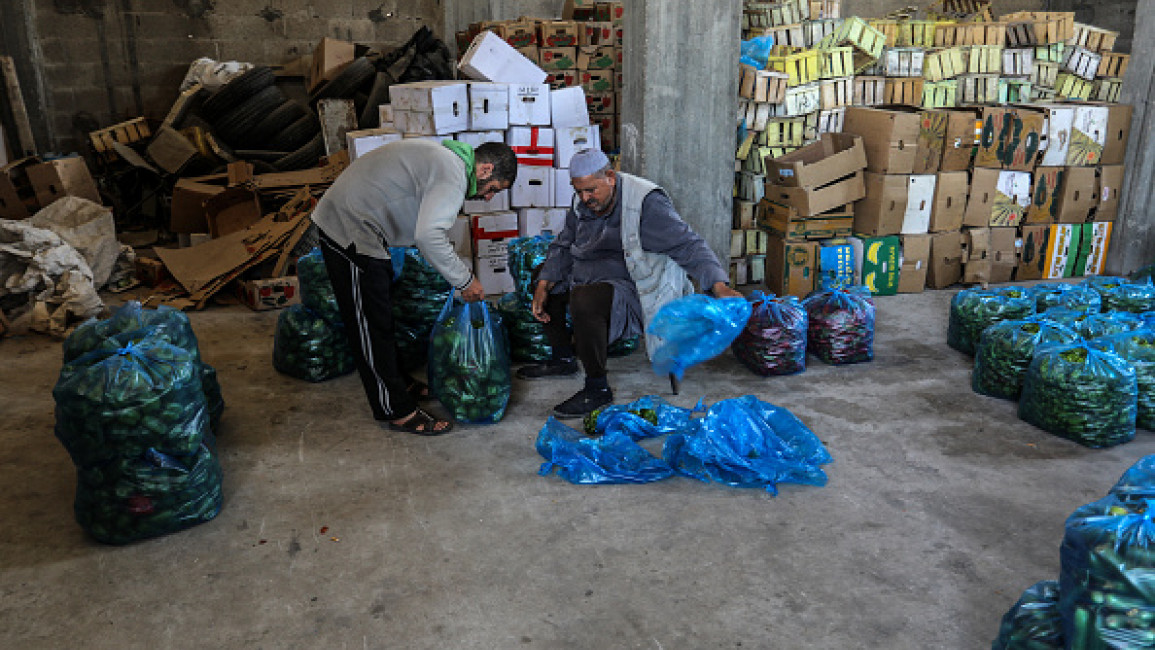Israel says it will reopen the main cargo crossing to Gaza on Sunday, as Gazans decry 'collective punishment'
Israel will reopen the main commercial crossing to Gaza after Israeli authorities closed it earlier this week, saying they had found explosives headed out of the illegally besieged territory. The closure was a severe economic blow to producers across the coastal strip.
The Kerem Shalom crossing was closed on Monday after authorities claimed explosives were found hidden in a clothing shipment bound for the occupied West Bank — one of the main markets for Gaza's tiny export sector — and feared they were intended for so-called militants in the territory.
After an investigation and “necessary adjustments,” the crossing was safe to reopen, Israel said, without elaborating further or presenting any evidence on the explosives found.
Palestinian fishermen, businessmen and rights advocates said the closure marked a form of collective punishment against Gaza’s 2 million people, including tens of thousands of laborers who heavily depend on exports to Israel and the West Bank to stay afloat.
Nearly all the goods that enter and exit Gaza pass through Kerem Shalom.
Challenges faced by Gaza’s fisherman during the closure were particularly acute. Their surplus stock perished before it could reach markets in Israel. Gaza’s main fishermen’s union reported $300,000 in losses due to the closure, a significant blow. Fish accounted for 6% of all Gazan exports in July.
The reopening promises a reprieve for fishermen like Khalid al-Laham, a 35-year old father of five who lives in the southern city of Khan Younis. Al-Laham was forced to borrow food from shops to feed his family during the closure.
“The financial and living conditions will certainly improve,” al-Laham said. "I will be able to feed my family and live a decent life.”
While the reopening promises to relieve producers across the territory, Gaza’s economy remains hamstrung by a dual Egyptian-Israeli blockade in place since Hamas won democratic elections and took control of the territory in 2007. The blockade has created an almost permanent humanitarian crisis in Gaza, pummeling the local economy by choking off access to external markets and limiting movement from the territory.


![Minnesota Tim Walz is working to court Muslim voters. [Getty]](/sites/default/files/styles/image_684x385/public/2169747529.jpeg?h=a5f2f23a&itok=b63Wif2V)




![Debris near Rafic Hariri International Airport [Getty]](/sites/default/files/styles/image_330x185/public/2176162423.jpeg?h=a5f2f23a&itok=MCSK9mkM)
![An Israeli air strike on Jabalia killed teenage journalist Hassan Hamad [Screengrab/X]](/sites/default/files/styles/image_212x120/public/2024-10/hassan%20hamad1.jpg?h=c12e0b96&itok=KstD_5xk)
